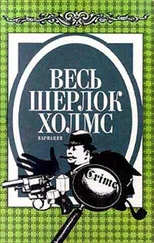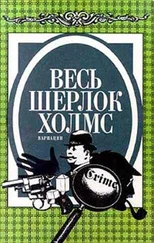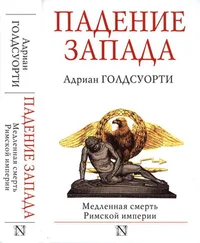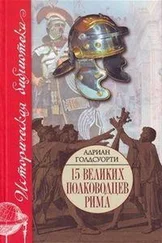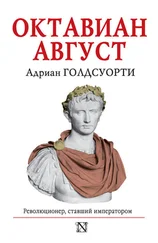cornicen (pl. cornicines ): trumpeters who played the curved bronze horn or cornu.
cornicularius : military clerk.
cuneus : the triangular or wedge-shaped seating in an amphitheatre. It was also used for a military formation that may have had a similar shape or simply been a narrow column.
decurion: the cavalry equivalent to a centurion, but considered to be junior to them. He commanded a turma .
dolabra (pl. dolabrae ): The military pick-axe, very similar in shape to the entrenching tool used by the army today.
duplicarius : a senior auxiliary soldier/NCO who earned double pay.
equestrian: (eques, pl. equites) the social class just below the Senate. There were many thousand equestrians in the Roman Empire, compared to six hundred senators, and a good proportion of equestrians were descendants of aristocracies within the provinces. Those serving in the army followed a different career path to senators.
exactus (pl. exacti ): military clerks attached to a governor’s staff and in charge of the archives.
frumentarii : soldiers detached from their units with responsibility for supervising the purchase and supply of grain and other foodstuffs to the army.
galearius (pl. galearii ): slaves owned by the army, who wore a helmet and basic uniform and performed service functions, such as caring for transport animals and vehicles.
gladius : Latin word for sword, which by modern convention specifically refers to the short sword used by all legionaries and most auxiliary infantry. By the end of the first century most blades were less than 2 feet long.
hastile : a spear topped by a disc or knob that served as a badge of rank for the optio, the second in command in a century of soldiers.
lancea : a type of spear or javelin.
lanista : the owner of a gladiatorial school.
legate (legionary): the commander of a legion was a legatus legionis and was a senator at an earlier stage in his career than the provincial governor (see below). He would usually be in his early thirties.
legate (provincial): the governor of a military province like Britain was a legatus Augusti , the representative of the emperor. He was a distinguished senator and usually at least in his forties.
legion: originally the levy of the entire Roman people summoned to war, legion or legio became the name for the most important unit in the army. In the last decades of the first century bc, legions became permanent with their own numbers and usually names and titles. In ad 98 there were twenty-eight legions, but the total was soon raised to thirty.
lemures : ghosts or unquiet spirits of the dead.
lillia : lilies were circular pits with a sharpened stake in the centre. Often concealed, they were a comman part of the obstacles outside Roman fortifications.
lixae : a generic term for the camp followers of a Roman army.
ludus (pl. ludi ): a school of gladiators.
medicus : an army medical orderly or junior physician.
murmillones : heavily armoured gladiators wearing a masked helmet.
omnes ad stercus : a duty roster of the first century ad from a century of a legion stationed in Egypt has some soldiers assigned ad stercus , literally to the dung or shit. This probably meant a fatigue party cleaning the latrines – or just possibly mucking out the stables. From this I have invented omnes ad stercus as ‘everyone to the latrines’ or ‘we’re all in the shit’.
optio : the second in command of a century of eighty men and deputy to a centurion.
phalerae : disc-shaped medals worn on a harness over a man’s body armour.
pilum : the heavy javelin carried by Roman legionaries. It was about 6 to 7 feet long. The shaft was wooden, topped by a slim iron shank ending in a pyramid-shaped point (much like the bodkin arrow used by longbowmen). The shank was not meant to bend. Instead the aim was to concentrate all of the weapon’s considerable weight behind the head so that it would punch through armour or shield. If it hit a shield, the head would go through, and the long iron shank gave it the reach to continue and strike the man behind. Its effective range was probably some 15 to 16 yards.
posca : cheap wine popular with soldiers and slaves.
praetorium : the house of the commanding officer in a Roman fort.
prefect: the commander of most auxiliary units was called a prefect (although a few unit COs held the title tribune). These were equestrians, who first commanded a cohort of auxiliary infantry, then served as equestrian tribune in a legion, before going on to command a cavalry ala .
princeps posterior : a grade of centurion in a legion, the second most senior officer in a cohort.
princeps : a Roman emperor was called the princeps or first citizen/first servant of the state.
principia : headquarters building in a Roman fort.
procurator: an imperial official who oversaw the tax and financial administration of a province. Although junior to a legate, a procurator reported directly to the emperor.
pugio : Latin name for the army-issue dagger.
raeda : a four-wheeled carriage drawn by mules or horses.
regionarius : a centurio regionarius was placed in charge of a set territory or region, where he performed military, diplomatic and policing functions.
res publica : literally ‘public thing’ or state/commonwealth, it was the way the Roman referred to their state and is the origin of our word republic.
sacramentum : the military oath sworn to the emperor and the res publica.
salutatio : traditional ceremony where people came to greet a Roman senator – and especially a governor – at the start of a working day.
scorpion ( scorpio ): a light torsion catapult or ballista with a superficial resemblance to a large crossbow. They shot a heavy bolt with considerable accuracy and tremendous force to a range beyond bowshot. Julius Caesar describes a bolt from one of these engines going through the leg of an enemy cavalryman and pinning him to the saddle.
scutum : Latin word for shield, but most often associated with the large semi-cylindrical body shield carried by legionaries.
sica : curved sword particularly associated with Thracian gladiators.
signa : the standards carried by Roman army units and often used as shorthand for ‘battle-line’ or in the sense of ‘with the colours’.
signifer : a standard-bearer, specifically one carrying a century’s standard or signum (pl. signa ).
Silures: a tribe or people occupying what is now South Wales. They fought a long campaign before being overrun by the Romans. Tacitus described them as having curly hair and darker hair or complexions than other Britons, and suggested that they looked more like Spaniards (although since he misunderstood the geography of Britain he also believed that their homeland was closer to Spain than Gaul).
Читать дальше


